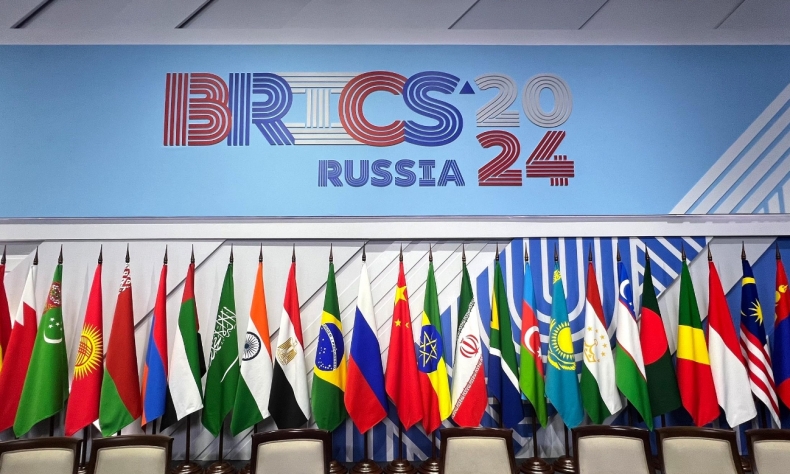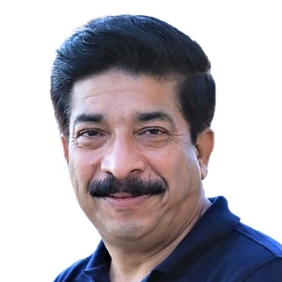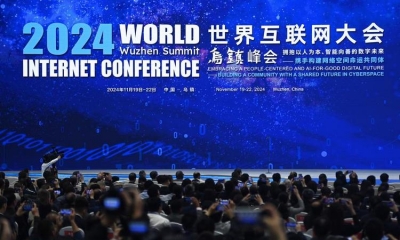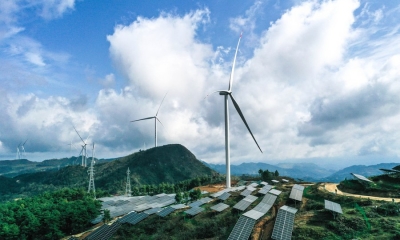BRICS in Kazan: Shaping a More Equitable Global Order

The BRICS mechanism has become a powerful force, promoting necessary reforms in global governance systems while empowering developing nations to chart their own course.
The 16th BRICS Summit was held in Kazan, Russia from October 22 to 24. The meeting, coinciding with the IMF and World Bank’s annual sessions in Washington, was a sharp contrast to the West’s narrative of isolation. The summit’s outcome, reflected in its expansive 43-page communiqué, reveals an ambition not to topple the existing global order but to reshape it.
BRICS seeks reform rather than revolution, advocating for a multipolar world where its member states play a more prominent role. Among the more striking proposals in discussion is the development of a new BRICS payment system. This isn’t about creating a parallel world but ensuring resilience and sovereignty in an increasingly fractured global landscape. Through these initiatives, BRICS positions itself as a platform for genuine multilateral cooperation, not just a counterbalance to U.S. dominance. The message is clear: the future of global governance cannot be defined by any one power but through the collective will of emerging powers seeking an equitable system.
At the “BRICS Plus” leaders’ dialogue in Kazan, President Xi Jinping took center stage, outlining a vision of unity and shared destiny for the Global South. His speech, titled “Combining the Great Strength of the Global South to Build Together a Community with a Shared Future for Mankind”, resonated deeply. Xi’s message was clear: peace, security, and prosperity should be collective goals, not privileges of a few. He emphasized the importance of common security, urging nations to reject conflict in favor of dialogue. Equally vital was his call for shared prosperity, pushing for economic revitalization that includes, rather than marginalizes, developing nations. Xi also spoke of cultural harmony, advocating for respect and understanding between civilizations — a principle embedded in China’s three global initiatives within BRICS.
The response from Global South leaders was unmistakable — momentum is building. For many, President Xi’s vision offers hope, a blueprint for a future where their voices matter on the world stage. BRICS, in this context, is not just a mechanism of cooperation but a platform for empowering emerging economies, affirming China’s belief that a more balanced, multilateral global order is possible. Through BRICS, the Global South sees its opportunity to forge a better tomorrow. In addressing the Ukraine crisis, President Xi Jinping struck a measured tone, urging the global community to “promote early de-escalation to pave the way for political settlement.” His words reflected a broader push for diplomacy over confrontation, emphasizing the necessity of lowering tensions before any meaningful negotiations can begin.

Turning to the Middle East, President Xi’s remarks were equally pointed. He called for a comprehensive ceasefire in Gaza, underscoring the urgency of halting violence and reviving the long-stalled two-state solution. “We must stop the flames of war from spreading in Lebanon,” Xi urged, calling for an end to the suffering that has plagued both Palestine and Lebanon for generations. Xi’s message was clear: the international community cannot afford to allow these crises to deepen. His calls for de-escalation and political solutions reveal China’s vision for global peace and stability to replace endless cycles of violence with dialogue and diplomacy. In a world fraught with conflicts, Xi’s approach underscores the importance of collective efforts to end suffering and foster peace. The Kazan Declaration, issued at the 16th BRICS Summit, reaffirmed the commitment to resolving disputes peacefully through diplomacy, mediation, and inclusive dialogue.
At the core of BRICS is a shared dedication to multilateralism, particularly in the global trading system. BRICS leaders voiced concern over the impact of unilateral coercive measures — actions that disrupt global stability and undermine the sovereignty of nations. They called for reforms to the Bretton Woods institutions, urging greater representation for Emerging Markets and Developing Countries (EMDCs) in leadership roles. These consensuses, reached by BRICS leaders, are more than rhetoric — they are practical, targeted efforts aimed at addressing the world’s deficits in peace, security, and governance. The BRICS mechanism has become a powerful force, promoting necessary reforms in global governance systems while empowering developing nations to chart their own course.
Why does BRICS cooperation have such a magnetic pull? It’s a question that seems to baffle some Western political elites. But really, it’s not that hard to understand — if they were to participate, the logic would become clear. BRICS isn’t their typical international club. Each country gets to decide how it wants to be involved, without worrying that its core interests will be trampled on. No one’s forced into a corner, and every nation — big or small — gets the same respect. Compare that with the often-heavy-handed alliances led by Western powers, where smaller countries tend to get steamrolled. In today’s world, with geopolitical conflicts escalating and uncertainty spreading like wildfire, it’s no wonder BRICS is gaining traction, especially among nations in the Global South. These countries are laser-focused on improving their citizens’ lives and achieving modernization. That’s why China’s Global Development Initiative, Global Security Initiative, and Global Civilization Initiative are getting such a warm reception internationally. BRICS’ success is tied to the success of these initiatives. It’s not just about geopolitical strategy; it’s about offering the Global South real momentum for growth. The progress made by BRICS countries isn’t just a diplomatic victory — it’s a sign of the times, showcasing the drive for development, stability, and a fairer global playing field. That’s the real story behind BRICS.
The article reflects the author’s opinions, and not necessarily the views of China Focus.
 Facebook
Facebook
 Twitter
Twitter
 Linkedin
Linkedin
 Google +
Google +






